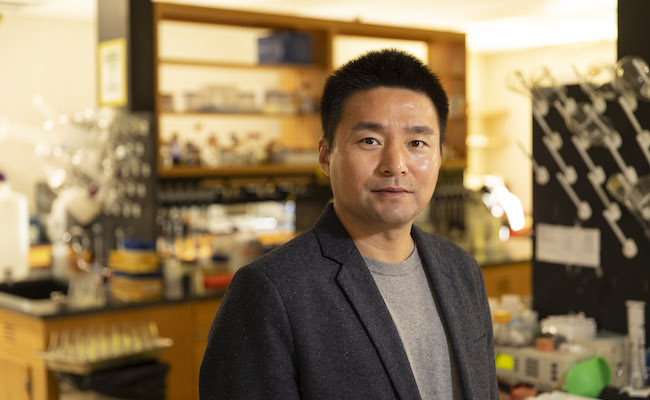
Yajun Yan
Yajun Yan is on a mission to deepen our understanding of cellular metabolism and regulation.
Yan, a professor at the University of Georgia College of Engineering, has been awarded the National Institutes of Health (NIH) Maximizing Investigators’ Research Award (MIRA) for Established Investigators. This grant, providing two million dollars over five years, supports Yan’s groundbreaking research focused on engineering bacterial strains to establish sustainable and environmentally-friendly microbial supply chains for the production of vital pharmaceutical compounds.
Yan’s research is marked by its innovative approach, aiming to develop cutting-edge platforms capable of significantly enhancing the synthesis of a diverse array of natural products, ranging from polysaccharides to terpenoids and plant polyketides, within bacterial systems. This visionary research program holds the promise of revolutionizing drug discovery and development by harnessing the inherent power of natural products.
“Recent advancements in biosensors, genetic control tools, and genetic circuits have ushered in a new era of sophisticated biosynthesis control in bacteria, optimizing production performance,” said Yan. “Yet, a significant hurdle remains: the absence of specific sensors to detect crucial cellular processes for many natural substances of interest.”
Through his MIRA, Yan and his team seek to tackle this challenge by:
- Engineering and characterizing biosensors to monitor and respond to central metabolism in bacteria.
- Developing dynamic control strategies to balance growth and production, supporting efficient biosynthesis of various compounds.
- Implementing strategies to reduce carbon loss and increase product yield, which can serve as a platform to support terpenoids and other acetyl-CoA derived products.
- Coordinating precursor supplies to support efficient biosynthesis of plant polyketides.
By reaching these goals, Yan hopes to revolutionize how we control the production of natural substances in bacteria. This could lead to better biosensors, new ways to engineer bacteria, and an overall deeper understanding of how cells work.
By Lillian Ballance


